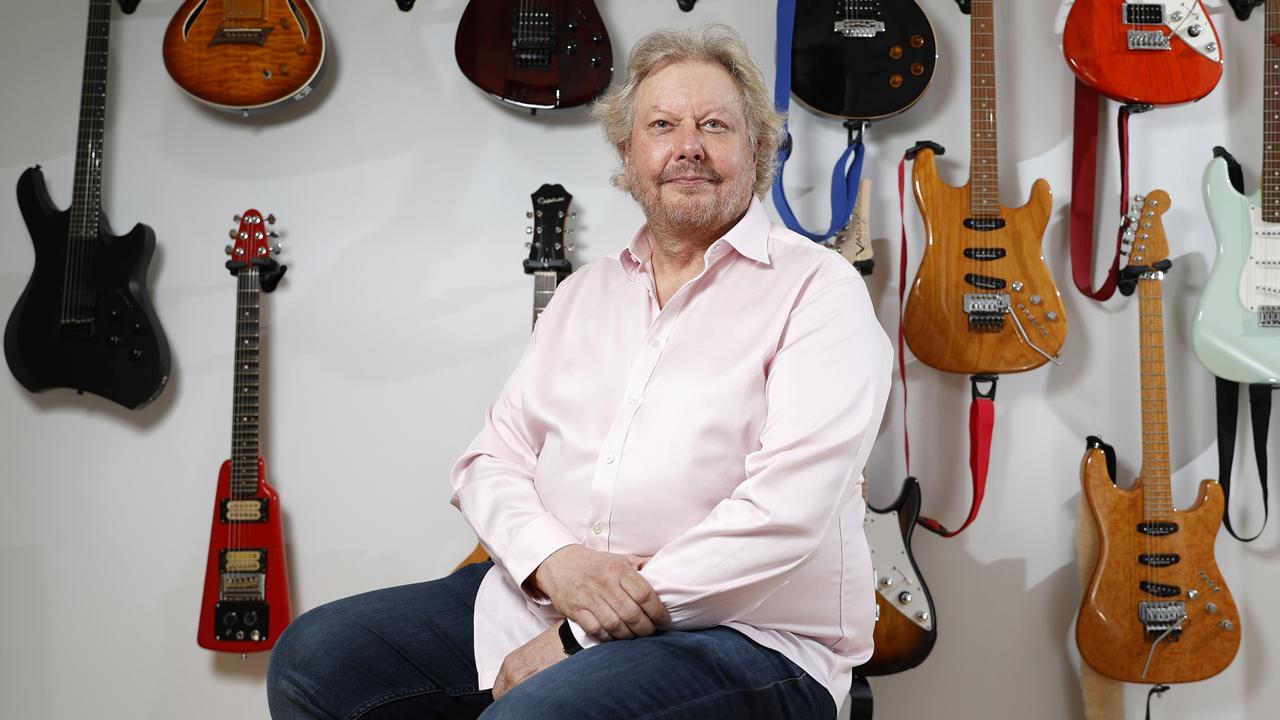‘Chinese Netflix’ takes on tech titans
A CHINESE internet colossus referred to as a combination of Netflix, Apple, Amazon and Tesla is launching a plan for global domination.
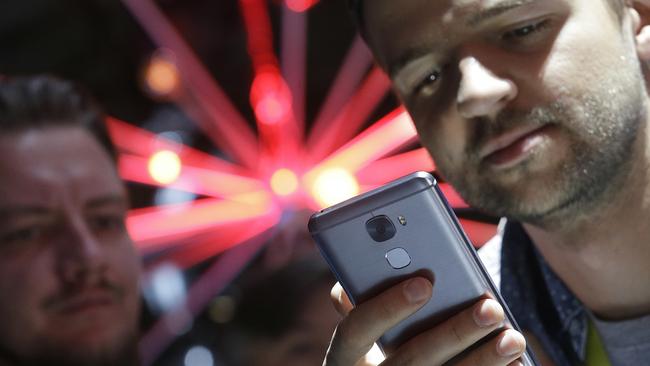
Business Technology
Don't miss out on the headlines from Business Technology. Followed categories will be added to My News.
A CHINESE internet colossus referred to as a combination of Netflix, Apple, Amazon and Tesla announced Wednesday it is taking on US tech titans on their home turf.
LeEco showed off smartphones, televisions, bicycles, self-driving electric cars and a virtual reality headset along with a platform to connect all its offerings to movies, television shows, services and more in the internet cloud.
“We have blazed a new path in the internet content domain,” LeEco founder and chief executive Jia Yueting said during a press event at The Palace of Fine Arts in San Francisco. “This is the first time we will be able to achieve this in America.”
Jia outlined a plan to win hearts and minds in the key North America market before moving to woo the rest of the world in the LeEco ecosystem.
He noted that some have told him “LeEco is crazy to come to the backyard” of companies such as Apple, Google, Netflix, Tesla and Amazon, but that he was confident it would succeed.
LeEco will launch two smartphones, flagship LePro 3 and its “little brother” Le S3, in the US on November 2 priced at $US399 ($517) and $US249 ($322) respectively.
On the same day, a line of Super4 X Series ultra high-definition televisions will make their US debut at prices beginning at $US649 ($840) and topping out at $US4999 ($6474) for a uMax85 that measures 85 inches diagonally.
LeEco positions the LePro 3 as an alternative to Apple’s latest iPhone and Google’s Pixel phone, whose prices both start at $US650 ($842), and promises the uMax 85 will be as good or better than other high-end home entertainment systems that cost $US8000 ($10,360).
The company also is selling a smaller smartphone and smaller TVs with screens ranging from 43 inches to 65 inches.
The smartphones and TVs will be sold at the company’s LeMall.com e-commerce website, and have software integrating the hardware with the LeEco cloud platform for services and content such as on-demand television.
LeEco promised enticing bargains during a “flash sale” at LeMall on November 2, out to make a splash in the market and get people using its Netflix-style subscription service for online content.
The company also displayed a virtual reality headset and its Super Bike packed with sensors, locks and other technology powered by Google-back Android software.
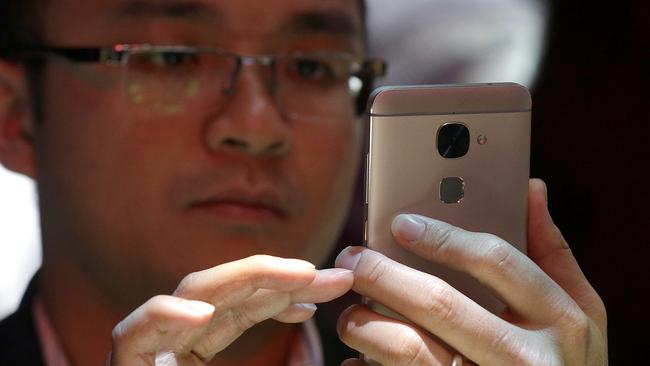
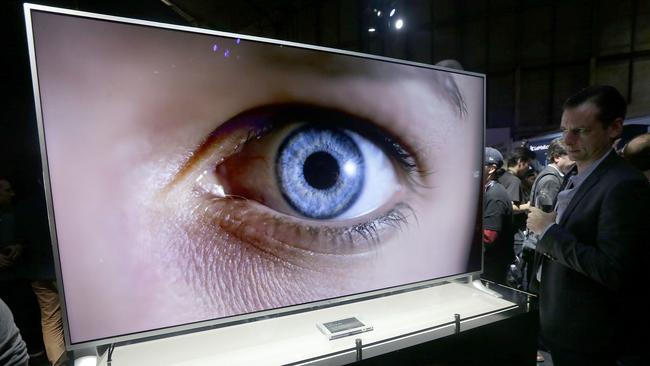
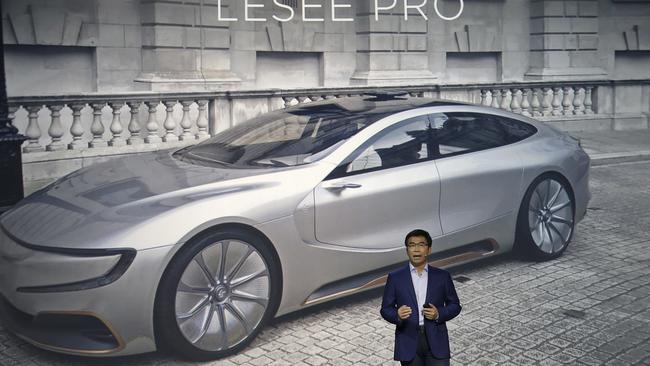
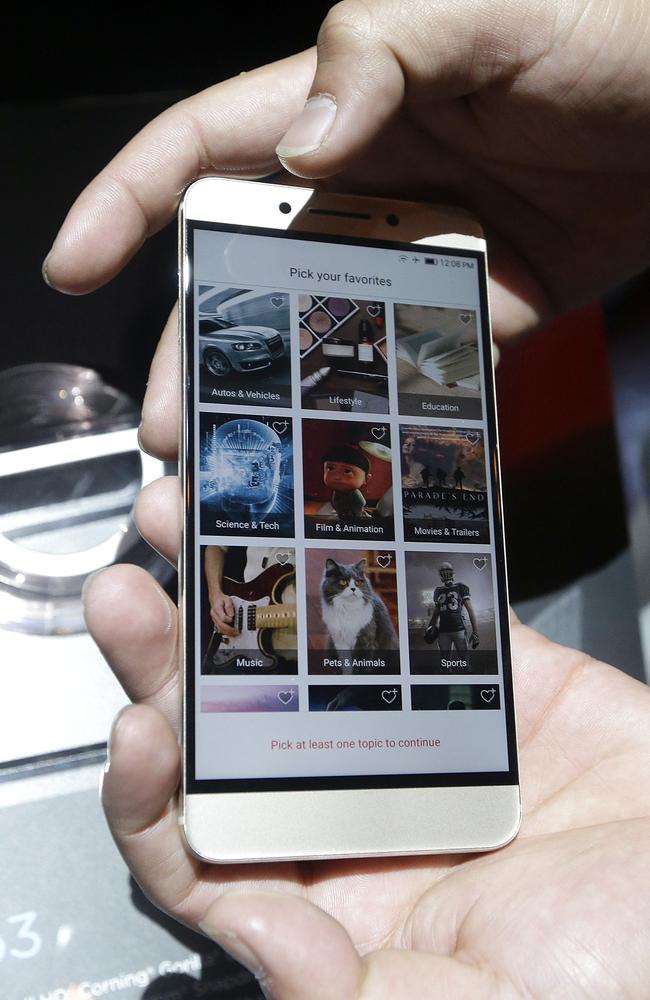
A new LeEco concept car that was being used in London for the filming of a new Transformers film being directed by Michael Bay was rushed to San Francisco for the event.
No plans were revealed for releasing LeEco bicycles, cars or virtual reality gear in North America. “It might seem that we have released a lot of seemingly unrelated products, but it is the opposite,” Jia said. “We have given these products the same nervous system to share content.”
He maintained that LeEco wasn’t coming to North America to challenge US technology giants, but to “create an entirely new generation of products” that are interconnected on the company’s cloud computing platform.
The company wants to tie all the devices with various other services that it intends to bundle together, including an online video package of shows and movies that ties into its origins as the “Netflix of China.”
LeEco, which stands for “Happy Ecosystem,” is branching out to challenge technology leaders who have been able to demand a premium for their products partly because they have been pleasing US consumers for years.
“America is the most important global market for us,” Jia said. “Once we get the hearts and minds of US users, we can move on to the hearts and minds of global users.”
Other Chinese companies that tried to make a splash in the US consumer electronics market barely made a ripple. But LeEco is investing. During the summer, the company paid $US2 billion ($2.6 billion) for budget-TV maker Vizio, a well-known brand in the US that sells in Costco and other prominent chains.
It employs several hundred workers at its US headquarters in San Jose, California, with ambitions to expand in Silicon Valley. Earlier this year, it snapped up a 50-acre site in Santa Clara, California, where it has approval to build an office complex that could span up to 3 million square feet and accommodate about 12,000 workers.
“They are not taking a half-baked approach,” said Gartner analyst Werner Goertz. “But I think they are going to be haemorrhaging money for the foreseeable future. The question is how long they can sustain this strategy?”
Originally published as ‘Chinese Netflix’ takes on tech titans

